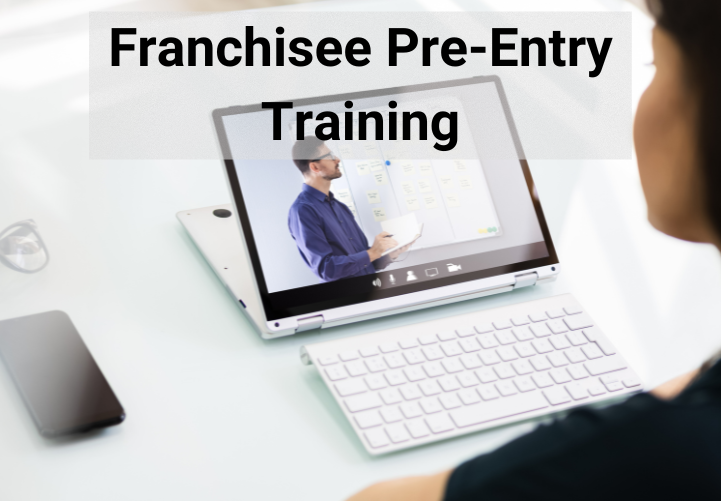Complaints and Dispute Resolution
There are several options for dealing with disputes within a franchise. The Franchise Association offers an independent complaints service which is outlined below. There are also the other options of Mediation, Arbitration and Court. It is always best to seek legal advice to understand which option is best suited to your situation.
Franchise Association members are required to undertake to comply with the Association’s Code of Ethics and Code of Practice. These commit them to take various steps including requirements that a process is followed.
Complaints Process
Who can make a complaint
Anyone can make a complaint against a member of the Association. If the member has:
- Breached the Association’s Code of Ethics; or
- Breached the Association’s Code of Practice; or
- Breached the Association’s Rules.
You do not need to be a member to make a complaint. If you are a franchisee, and your franchisor is a member, you can, therefore, make a complaint against your franchisor.
To check if the party you want to complain about is a member, look to see if they are listed on the FANZ Member List or contact the FANZ office for confirmation.
Is the FANZ complaint process right for you?
Complaints Procedure
Further Information
Download our Frequently Asked Questions for additional information that may be useful.
Dispute Resolution
If you have a problem or a dispute then the following general information may assist you find a way to resolve that dispute. This information is not intended as a substitute for legal advice. Please see you lawyer for advice specific to your issue.
To the right is a list of Franchise Association approved mediators. Click on a mediator’s name on the right to find out more.
Mediation
It is an important requirement of the Association’s Code of Practice that Franchisor members have a dispute resolution clause in their franchise agreements which requires them to attempt to resolve dispute with you by negotiation and mediation. This means franchisors must mediate disputes, if they cannot be resolved by face to face meeting or other negotiation.
Mediation is a much cheaper and quicker method of resolving disputes than going to Court. It is known as a method of alternative dispute resolution, because it is alternative to going to Court. The Association promotes mediation as a method of dispute resolution for these reasons.
The other benefit of mediation is you can negotiate outcomes that a Court would not be able to order.
In a mediation, the parties negotiate an acceptable outcome to their dispute. The mediator has no power to impose a finding on the parties. If the dispute does not resolve at mediation, then the next steps are arbitration or Court.
If you do have a dispute, you should therefore first check your agreement to see if there is a compulsory mediation clause in your agreement. You will then need to follow the process set out in your agreement to resolve the dispute.
The requirement to mediate does not apply in every case, for instance it does not apply if either party needs to seek an injunction remedy from the Court. Please take advice on your own position to see whether your dispute can be mediated.
Mediation - Frequently Asked Questions
These frequently asked questions and answers are provided as a general guide only. All specific information that deals with your particular mediation should be discussed and agreed with your selected mediator.
1. How quickly can a mediation be organised?
Mediation happens as soon as the mediator is available, usually within four weeks.
2. If a franchisee contacts the mediator directly, does this prevent the other party from requesting the mediator’s services?
No. Usually, one party will contact the mediator first to talk about mediation and whether it will be suitable. As part of the mediation process, a mediator will usually have a longer pre-mediation talk (usually by Zoom) with each of the parties before the mediation.
3. What are the costs associated with mediation?
Mediation costs vary between $5k-$10k plus GST. Additional fees may include any preparation prior to the mediation, your lawyer fees for the day and possible room hire fees. Usually, both parties share these expenses.
It is recommended to get a price from your lawyer of the overall cost before proceeding to mediation. It is possible to mediate without a lawyer, but you should take advice from your lawyer on that.
4. What preparation is required for mediation?
Usually, your lawyer would prepare a position statement ahead of the mediation. This will be provided to the mediator and the other party. It is not a detailed analysis of your case but a summary of the case and the relevant issues that need to be mediated.
5. Is the mediation without prejudice?
All settlement discussions are always without prejudice. This includes at a mediation. This means that nothing that is said can ever be used against any party in any later court hearing.
6. If an agreement is reached through mediation, how binding is it?
During the initial phase, the involved parties sign an “agreement to mediate”. They collectively determine whether they want their agreement to hold legal weight. If they opt for legal enforceability, the mediator can include a statement like, “Any settlement reached will be legally binding, allowing any party to enforce its terms through court proceedings”. Alternatively, the mediator might draft a “Heads of Agreement,” which the parties can then take to their respective lawyers to formalise into a binding agreement. The mediator typically brings a laptop to facilitate the drafting process, allowing the parties to sign the agreement electronically on the spot.
7. What happens if one party doesn’t follow the mediated agreement?
If one party fails to comply with the agreement, the other party would have to issue court proceedings.
8. Does the mediator propose settlement options or give opinions during mediation?
Mediators help parties find solutions but generally don’t offer opinions. However, they can provide input if asked.
Franchise Association Mediation Panel
In the event the parties cannot agree on a mediator, FANZ Member franchise agreements provide that FANZ can be asked to appoint a mediator for the parties. For that purpose, the Association maintains a panel of FANZ approved mediators to assist members in dispute resolution by mediation.
To the right is a list of Franchise Association approved mediators. Click on a mediator’s name to find out more.
Arbitration
Some franchise agreements provide that in the event the dispute is not resolved by Mediation, the parties must arbitrate their disputes. Arbitration is also much quicker than taking a case to Court, although not necessarily any cheaper. In an arbitration, a privately chosen arbitrator (usually a retired Judge or senior lawyer) will preside over the dispute and make findings that bind you. You will have to give evidence and be cross examined, much as you would in any Court case.
Court
Taking a case to Court tends to be a pathway of last resort, because of the expense and delays involved with that process. As with arbitration, the outcome of the case is decided by a Judge, following a trial.




